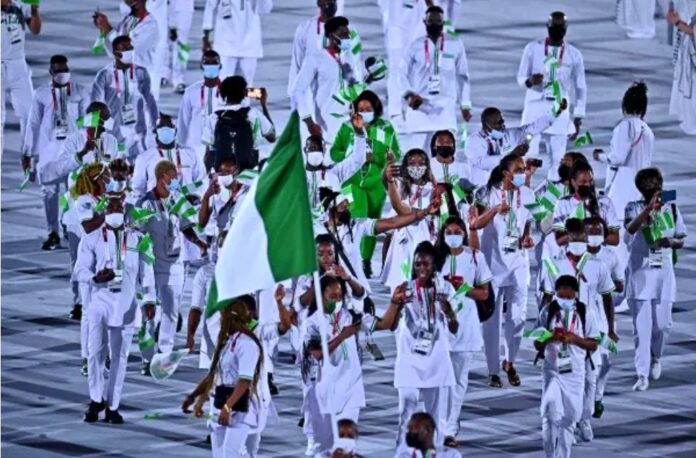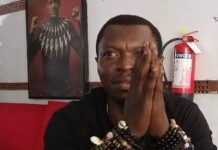The Nigerian contingent to the Tokyo 2020 Olympics Games in Japan suffered an unusual defeat in the hands of some of the teams that used to be weak contenders, coupled with some doping controversies the team had to contend with.
A 55-man team composed of regular athletes and paralympians placing 74th in the medal standing with one silver and one bronze medal is not a good outing for a country with abundant human talents. Even the botched 1976 Montreal Olympics in Canada, where the Nigerian contingent boycotted a day after joining the tournament was much better.
Recall that the Nigerian delegation returned with no medal at the 2012 London Olympic Games, one token bronze in soccer at the 2016 Rio Olympic.
Poor sports administration and an imbalance between the management, technical coaches, organising assistants and the President trusting sports in the hands of managers with very little or no knowledge in sports management is the bane of the whole problems bedeviling the game in Nigeria.
Jamaica is threat to every athletic nation today because Asafa Powell, Don Quarrie, Michael Frater and all of the greatest sportsmen and women Jamaica ever had where allowed to manage sports at all levels of engagement which eventually birthed Usain Bolt, Shelly-anne Fraizer Pryce, Yohan Blake and other legends before them. At the pace Jamaica, the United States and Australia are today, they may continue to dominate world athletics in the next 15-20 years.
The sports industry, like the health sector is a very delicate one that must be well thought out, articulately structured and the schedules well mapped out to enable athletes compete for laurels at the schools sports, youth games and elite levels.
Despite the huge funds President Buhari sunk into this edition, the Tokyo Olympics ranking is one of the worst in recent times; this should worry every veteran sports lover. No one goes into a contest haphazardly prepared and expects victory. The athletes gave their all but poor organisation, level of preparedness and bureaucracy is the main reason for this year’s abysmal performance. To guarantee primetime performance, some countries camp athletes for major international tournaments as early as 12 months before the competition.
Athletes must be pampered to put in their personal interest and involvement to make every challenge a success.To ensure long-term sustainability of great athletes, the Nigerian sports system must develop a model to scout, discover and manage athletes on a continuous basis. Soccer, Athletics, Swimming, Weightlifting, Taekwondo, Karate, Boxing, Chess together with the 34 other sports under the Ministry of Youth & Sports Development must undergo reform.
How could the AFN allow Melody Bassey, one of Nigeria’s finest and most wanted Pole Vaulters and Decathlon athletes walk away? How about Bayelsa born Shedrack Akpeki, a 400m runner who’s one of the most sought after? Kogi born Dorcas Onoja, one of the finest Boxers in her age category in Africa. Afterall, Jamaica’s Usain Bolt, USA’s Justin Gatlin and all of the other black athletes of African descent doing wonders around the world are from the same genetic stock which found its origin from our shores.
The total population of Australia is about 29 million and they won 46 medals at the 2020 Tokyo Olympic Games with a 51-man team. In contrast Nigeria won one bronze and one silver medal with a 54-man delegation and a population of over 180 million people. Population figures indicate that 65.71 percent or 124.5 million Nigerians are less than 29 years old. This is the catchment age bracket for fruitfully engaging the youths in this vital national service.
While l congratulate our athletes for the courage to face nations prepared by professional technocrats from the sporting world, l call on the authorities at the national level to revisit issues surrounding sports, and also re-organize or overhaul the management of sports in Nigeria if we must put up a formidable challenge by mid 2024.










